5. The Fountain (2006)
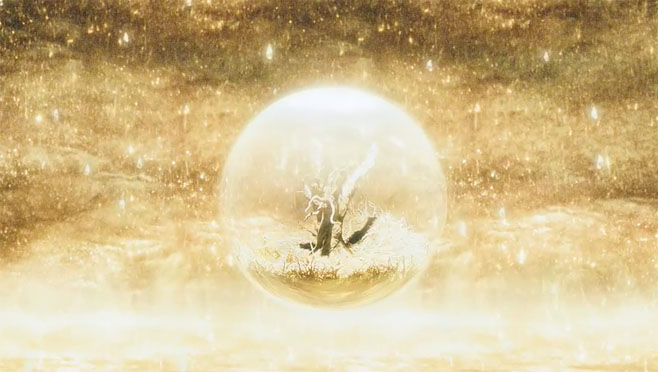
A psychedelic science-fiction fantasy and a historical romance that miraculously maneuvers multiple meanings, ideas, themes, and storylines in an epic triptych that ambitiously spans a thousand years, Darren Aronofsky’s The Fountain centers on the celestial space pursuance of everlasting life represented in a mythical tree. Sound familiar? Of course not. There’s never been a sci-fi spectacle quite like this.
Starring Hugh Jackman in three roles; as Tomás Verde, a 16th-century Spanish conquistador; Tom Creo a 21st-century neurologist; and Tommy a space traveler in the far future en route to the golden nebula of Xibalba, each fighting to save his beloved (Rachel Weisz) from death, The Fountain takes the biblical tree-of-life from the Book of Genesis and Kabbalah.
There’s also a gripping and speculative through line binding neuroscience and Spanish colonialism as well as Mayan myths glimpsed from an indigenous lens, and even a playful yet profound intermingling of David Bowie’s “Major Tom” pop chronicle.
Matthew Libatique’s stunning cinematography give The Fountain it’s most immediate pleasures, presenting an often floating camera-feel that helps the ethereal and romantic elements appear more palatable as in the meticulously detailed and beaming bright with candles 16th-century Spanish court or the darkened yet intricate chambers of the fanatical zealot Grand Inquisitor Silecio (Stephen McHattie) where a gold-lit fringe dazzles with a Bosch-like lucidity.
Aronofsky and Libatique also share a fondness and love of close-ups and we repeatedly see sumptuous glances or long and lovely looks of Jackman and Weisz––in proximity that would surely be lauded and loved by the likes of Ingmar Bergman, for one––in cinematic portraiture that smartly underscores the film’s movement from darkness into light.
The Fountain should be forgiven its poetic flourishes and ambiguous angles as the most important point of the film is irrefutable; it looks like a miracle.
4. Melancholia (2011)
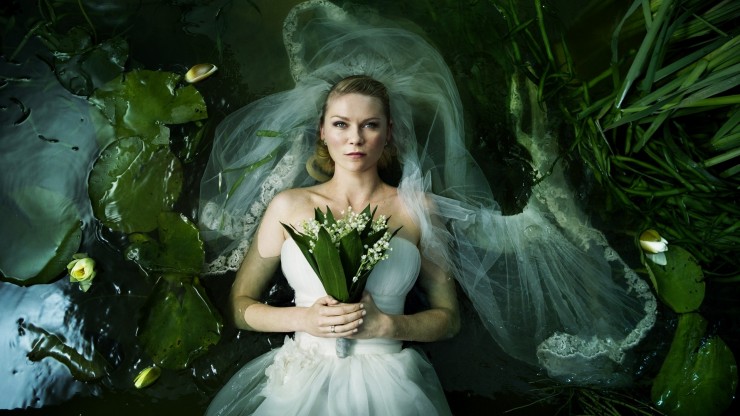
There’s a certain je ne sais quoi about Lars von Trier’s hypnagogic and deeply pensive apocalyptic powerplay Melancholia that cinches it as one of the director’s very finest and most visually ravishing motion pictures.
For one, it’s so rare a thing that a film capture with such startling insight and due diligence the emotional state that depression casts upon the individual, and for anyone who’s wrestled with that black dog they can easily see the naked truth in Kirsten Dunst’s chef-d’oeuvre central performance as Justine.
Von Trier, with Melancholia, playfully and profoundly upends sci-fi convention in a tense and dangerous spring-loaded narrative that pivots around newlyweds Justine and Michael (Alexander Skarsgård). These ill-fated lovers tie the proverbial knot just as the world learns of the presence of a rogue planet, “Melancholia”, which is believed to be on a near-collision course with Earth and will most certainly be an extinction level cataclysm.
And while that synopsis sounds like another dirge from the oft-gloomy von Trier, a fair share of gallows humor inhabits the film––look no further than Udo Kier as the wedding planner of the apocalypse and try not to chuckle at the drollery of it all.
Led by Dunst’s luminous performance, ably backed by Charlotte Gainsbourg as her sister, Claire, both hanging on the speculations and suspicious that the End of Days might not be so dour for everyone. The film also presents a formal elegance––perhaps best displayed by the slo-mo grand-scale eradication gracefully captured by the Phantom HD Gold cameras––resulting in a lushly unforgettable bookend of astonishing and shocking visuals. An unforgettable showpiece.
3. The Grandmaster (2013)
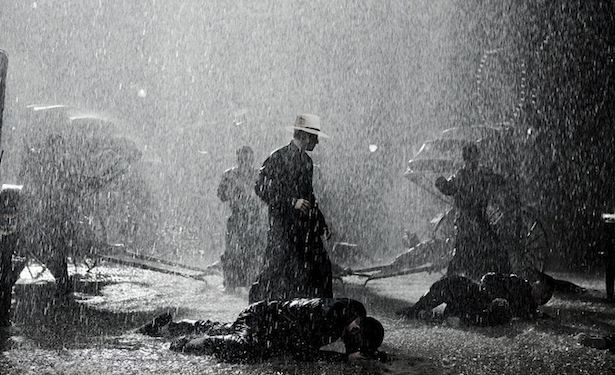
Vividly convincing, more elegiac than dramatic, and beautiful to behold, Wong Kar-wai’s stylistic martial arts epic The Grandmaster is a captivating feat of cinematic strength. While it may not have the clarity of vision and somber elegance of Wong’s shattering showpiece In the Mood for Love (not on this list as it was released in 2000, and so is technically from the last century), this is still an achingly gorgeous and luxuriant visual feast.
Yes, the Grandmaster has some murky narrative problems––largely lost in translation––and this presents some frustration as substance succumbs to style, but the overwhelming, often mercurial, and endlessly impressive action scenes help make this exploration of the life of the legendary wing chun teacher Ip Man (Tony Leung) an astonishing experiment in sensory cinema.
Beginning in the 1930s and moving through to the 1950s, the often ritzy period details are perfect, as are the stunningly fluid and dynamic movements of Gong Er (Zhang Ziyi), and the reverential approach to martial arts traditions, distinctive combat styles, makes for an impressive genre hybrid of kung fu action and arthouse. The Grandmaster is a gorgeous, intoxicating, and sweeping jewel of a picture from Wong, but let’s hope that the 21st Century will see a few more from this sensualist and stunning craftsman.
2. The Assassination of Jesse James by the Coward Robert Ford (2007)
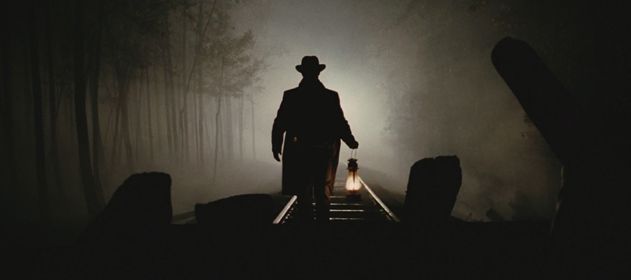
Andrew Dominik’s erratic, and some would argue overlooked, The Assassination of Jesse James by the Coward Robert Ford, is an intensely self-conscious and artful study of Old West legend. With the ingenious, magic-hour blush we’d expect from Terrence Malick, Dominik’s is a movie without clearly defined heroes or villains, but with uncertainty and symmetry in spades.
Brad Pitt’s Jesse James is a walking contradiction; cold killer, loving husband, attentive father, self-conscious legend. Jesse is stalked by Robert Ford (Casey Affleck), an excusably naïve, starstruck easy mark. As the spoiler containing title suggests, Robert will take the life of Jesse, his hero, a graven image of Western tradition. It’s a fascinating fool’s paradise of a film.
Lifted by Roger Deakins’ lens––together he and Dominik reimagine many Western tableaus with elegant and often chilling results––and buoyed by Nick Cave’s aching and augural score (Cave also makes a quick cameo), it’s a riveting, musing, and formal period piece with a modern caveat on celebrity culture.
1. Tree of Life (2011)
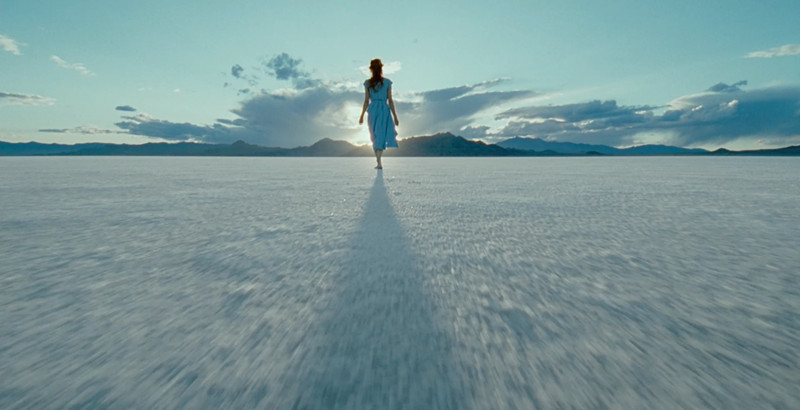
An achingly beautiful cinematic poem on love, life, and being, Terrence Malick’s ravishing, philosophical powerplay The Tree of Life is an unforgettable experimental epic that deservedly received the Palme d’Or at the 2011 Cannes Film Festival.
Ostensibly the story of three brothers from a small town somewhere in Texas. Jack O’Brien has a contentious and difficult relationship with his father (Brad Pitt), but gets along well with his almost ethereal mother (Jessica Chastain). Later, as an adult, though the film is told in nonlinear fashion, Jack (Sean Penn) wrestles with his past while trying to come to terms with his childhood, while also combating feelings of existential panic.
“A mad and magnificent film,” raved The Guardian’s Peter Bradshaw, also praising Malick’s artful vision as an “unashamedly epic reflection on love and loss.”
In addition to the deeply spiritual and poetic grandeur of the film, the cinematography by Emmanuel Lubezki is ravishing and almost overwhelming when combined with Malick’s personal and exalted purpose.
The Tree of Life is the very definition of an art film, yes, it’s also one of the most gorgeous and moving treatise on modern man that you’re likely to find.
I clearly recall staggering out of the cinema afterwards as a changed person, feeling transfigured and transformed by something alternately sorrowful, sublime, totally abject and also esoteric. And are these not the reasons why we experience cinema to begin with? The Tree of Life is a gorgeous and monumental sensory encounter.
Author Bio: Shane Scott-Travis is a film critic, screenwriter, comic book author/illustrator and cineaste. Currently residing in Vancouver, Canada, Shane can often be found at the cinema, the dog park, or off in a corner someplace, paraphrasing Groucho Marx. Follow Shane on Twitter @ShaneScottravis.